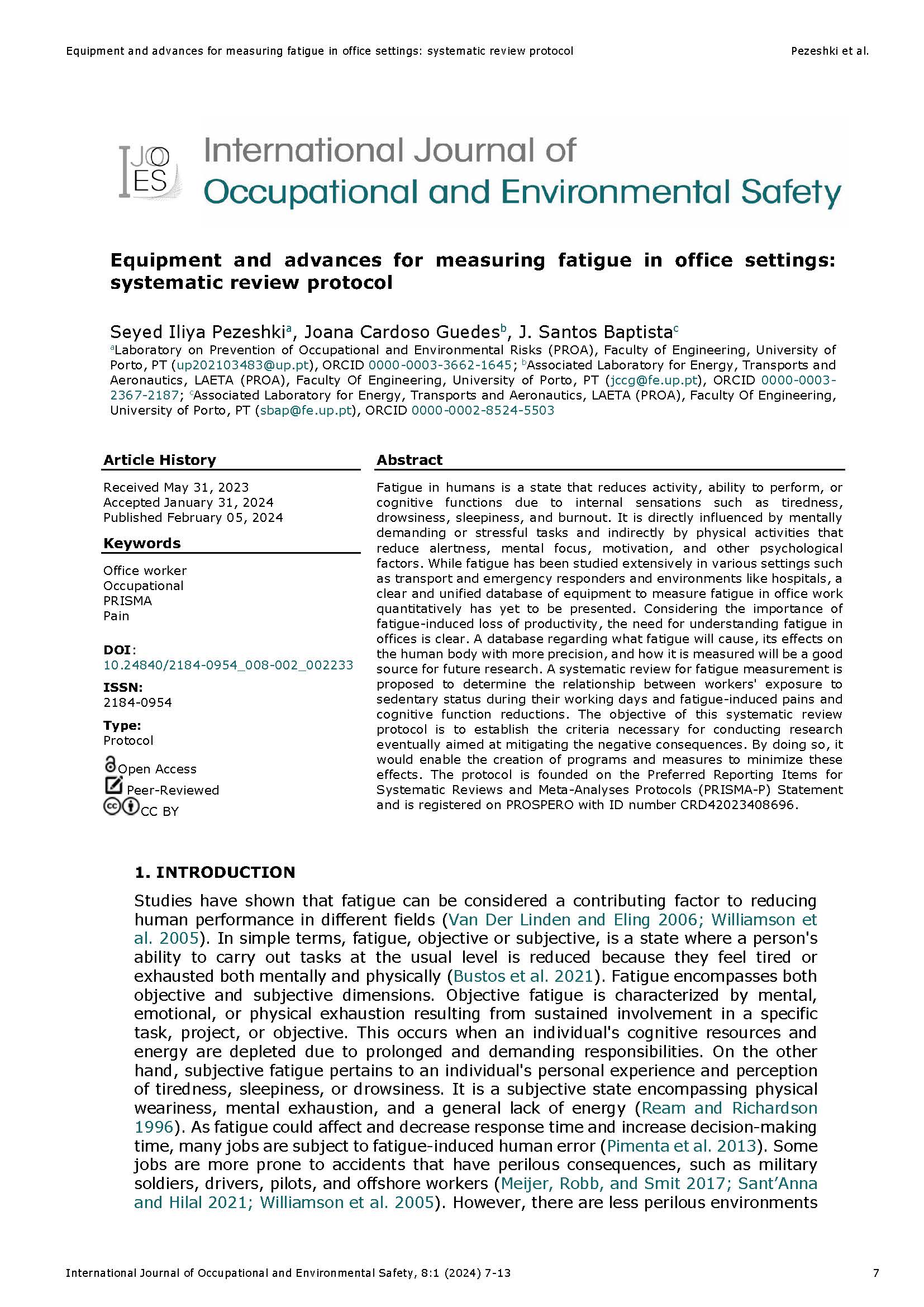Equipment and advances for measuring fatigue in office settings: systematic review protocol Protocol
Main Article Content
Abstract
Fatigue in humans is a state that reduces activity, ability to perform, or cognitive functions due to internal sensations such as tiredness, drowsiness, sleepiness, and burnout. It is directly influenced by mentally demanding or stressful tasks and indirectly by physical activities that reduce alertness, mental focus, motivation, and other psychological factors. While fatigue has been studied extensively in various settings such as transport and emergency responders and environments like hospitals, a clear and unified database of equipment to measure fatigue in office work quantitatively has yet to be presented. Considering the importance of fatigue-induced loss of productivity, the need for understanding fatigue in offices is clear. A database regarding what fatigue will cause, its effects on the human body with more precision, and how it is measured will be a good source for future research. A systematic review for fatigue measurement is proposed to determine the relationship between workers' exposure to sedentary status during their working days and fatigue-induced pains and cognitive function reductions. The objective of this systematic review protocol is to establish the criteria necessary for conducting research eventually aimed at mitigating the negative consequences. By doing so, it would enable the creation of programs and measures to minimize these effects. The protocol is founded on the Preferred Reporting Items for Systematic Reviews and Meta-Analyses Protocols (PRISMA-P) Statement and is registered on PROSPERO with ID number CRD42023408696.
Article Details

This work is licensed under a Creative Commons Attribution 4.0 International License.

